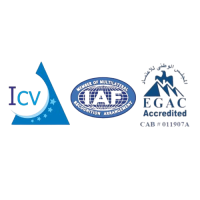HACCP
Certification
About HACCP Certification
HACCP certification (Hazard Analysis Critical Control Points) is a basically a risk management tool associated with food hygiene which is used to manage food safety risks. You can achieves this by identifying food safety hazards and controls in place in order to manage these risks. HACCP was developed based on the internationally recognized Codex Alimentarius standards and guidelines and other national standards.
Hazard Assessment Critical Control Points (HACCP) is a food safety program that identifies and controls potential sources of contamination to prevent foodborne illness. HACCP is based on risk assessment and preventive controls designed to assure that all potentially hazardous foods are safe when they are handled, prepared, packed and held under prescribed conditions


Benefits of HACCP Certification
- Sustainable food safety assurance
- Greater satisfaction among customers and employeess
- Attracts investment, enhances brand reputation and removes barriers to international trade within the food industry
- Provides an advantage over competitors who are not accredited
- Greater economy through process improvement, higher return on assets and greater profitability
- Increases buyer, retailer and consumer confidence within the food industry
- Manage food safety risks across the whole supply chain
- Align with ISO 22000 food safety management system
- * Non Accredited.
